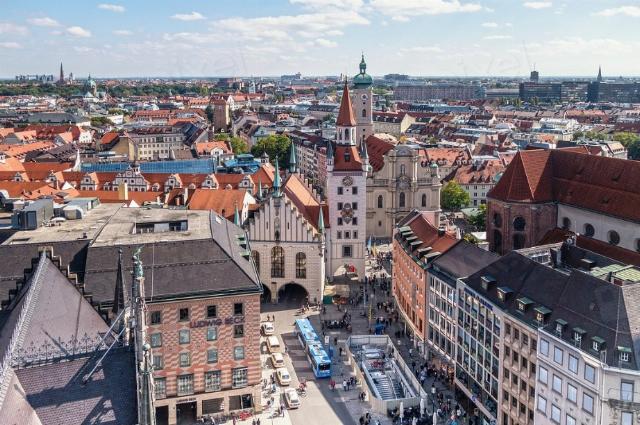Can we revisit Munich’s not-so-great reputation?
It wouldn’t be an exaggeration to say that the German city of Munich is often mentioned with negative connotations.
The Beer Hall Putsch on November 8–9, 1923, also known as the Munich Putsch, by Nazi Party leader Adolf Hitler brought him to the attention of the German nation and eventually to become chancellor of Germany on January 30, 1933, after a series of Nazi victories in elections.
Another blow to the image of Munich was the day, September 30, 1938, when British and French prime ministers Chamberlain and Daladier met with Hitler and Mussolini to sign the Munich Agreement. According to many historians, this was the actual start date of WWII.
Of course, on September 5, 1972, another tragedy was associated with Munich due to a terrorist attack during the 1972 Summer Olympics, carried out by eight members of Black September.
However, on February 14, 2025, something happened in this city that might illuminate its image. It was U.S. vice president J.D. Vance’s address at the Munich Security Conference (MSC). His speech, which was fully endorsed by President Trump, obviously did not eliminate, but at least substantially reduced the risk of WWIII.
“The threat that I worry the most about vis-à-vis Europe is not Russia, it’s not China, it’s not any other external actor,” said Vance. Rather, the “threat from within” poses the greatest danger to Western security, due to “crushing dissent, policing speech, and infringing on religious freedoms.”
Christoph Heusgen, chairman of the Munich Security Conference (MSC), closed its 61st session with words that sounded more like a divorce statement between Europe and the United States. “This conference started as a trans-Atlantic one, but after the speech of Vice President Vance, we have to fear that our common value base is not that common anymore,” said Mr. Heusgen with tears in his eyes. In other words, Heusgen was speaking about the divorce of the party of war from the party of peace.
At this point, we shouldn’t be euphoric. We must recognize that we are only at the beginning of a challenging and bumpy road to peace, since the parties of war, both in the U.S. and in Europe, are still very powerful. Nevertheless, at the U.S.-Russia meeting in Er-Riadd, Saudi Arabia, which followed the MSC, even the New York Times had to admit that “the United States and Russia moved toward a head-spinning reset of their relationship, agreeing to work together on ending the Ukraine war, financial investment and re-establishing normal relations.”
At the same time, there is no full solidarity in Europe. French president Emmanuel Macron called an emergency summit of European leaders in Paris to discuss what to do, given that the United States’ support is no longer guaranteed. Anatol Lieven called the Paris summit “theater and much ado about nothing.” He wrote, “The chaotic state of present European thinking on Ukraine and the Ukraine peace process reflects this underlying lack of public will, as well as the bewilderment of European establishments that for many years have left responsibility for their strategy in the hands of the United States, and now find themselves expected to think for themselves.”
In his MSC speech, Heusgen thanked European leaders and Ukraine’s President Zelensky for “continuing to adhere to our common value base, which is not that common anymore,” meaning with the U.S. under the Trump administration. In reality, the words “democracy” and “values” are devalued, mainly by those who frequently use them while violating their meanings. Look at the pitiful ratings of most European leaders glorified by Heusgen, whose policies ignore the interests and wishes of their people.
When it comes to Zelensky, even The Hill, which portrays itself as a “non-partisan newspaper that covers Congress and the White House,” calls him “the mad king of Kyiv.” The author of the article, John Mac Ghlionn, describes how “a comedian, by a twist of fate and the help of the media, was transformed into the embodiment of courage, the Churchill of Kyiv, the warrior standing against tyranny.”
“But what if this narrative is entirely false?” asks the author. “What if Zelensky, rather than being the hero, is the man who won’t allow the war to end — not for the good of his people, but because peace would mean his own downfall? ... No elections. No peace talks. No escape. Because if the war ends, so does his presidency. And this, more than anything, explains why the war must go on.”
During his recent press conference, Trump practically quoted The Hill’s article, but it remains to be seen if he can succeed in fighting the Deep State and draining the Washington swamp, which he failed to do during his first term.
Still, from now on, we should remember that besides Munich’s dark moments, something positive has also happened that brought us a glimpse of hope rather than despair.

Image via Raw Pixel.